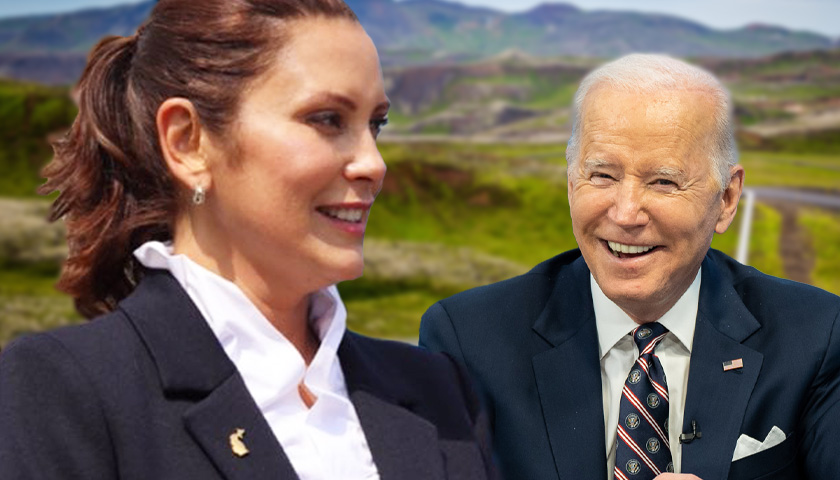by Bruce Walker
President Joe Biden may be preparing to make a big ask of the United States’ neighbor to the north, and if he does it will run contrary to the agenda of Michigan Gov. Gretchen Whitmer and her administration.
According to Tuesday’s Wall Street Journal, the first-term Democratic president is considering asking Canada to boost its oil exports to the United States. However, the president halted construction of the Keystone XL Pipeline on his first day of office. XL would’ve have transported 830,000 barrels of Canadian crude from Alberta to Nebraska each day.
In the meantime, the Michigan governor and Attorney General Dana Nessel – both Democrats like Biden – have been working in the courts to permanently shut down a five-mile portion of the Enbridge Line 5 pipeline which ships 540,000 barrels of Canadian hydrocarbons daily across a five-mile section of the Straits of Mackinac lakebed.
For its part, Canadian company Enbridge has invoked a 1977 international treaty between Canada and the United States in its effort to stymie the Whitmer administration’s goal. Both the state and Enbridge are awaiting an imminent legal decision that will determine whether the lawsuit between the two parties will be conducted in a state or federal court.
Facing the reality of rising oil prices, the president previously asked Venezuela and Saudi Arabia to increase oil exports to the United States. The WSJ notes the Biden administration will ask the Canadian oil producers to transport the hydrocarbons via rail cars and existing pipelines rather than rebooting the XL project.
Research conducted by the Pipeline Safety Trust, a nonprofit based in Bellingham, Wash., concluded:
- Pipelines spill more, both based on sheer volume, and on a per-ton-mile or per-barrel-mile basis.
- Rail transport accidents cause more injuries to humans on a per-barrel-mile or per-ton-mile basis.
- The probability of a spill from rail is greater on a per-barrel-mile or per-ton-mile basis, though the majority of spills tend to be quite small in volume.
A 2015 study by the Fraser Institute, a Canadian-based free-market think tank, concluded:
- Transporting oil and gas by pipeline or rail is in general quite safe.
- But when the safety of transporting oil and gas by pipelines and rail is compared, taking into consideration the amount of product moved, pipelines are found to be the much safer transportation method.
- Specifically, rail is found to be over 4.5 times more likely to experience an occurrence when compared to pipelines.
“While the Biden Administration is desperately trying to undo the damage caused by their anti-American energy policies, Whitmer and Nessel are continuing their push to take over 540,000 barrels per day off the market,” said Eric Ventimiglia, executive director for Michigan Rising Action. Ventimiglia continued: “Americans will continue to pay the price for Democrats’ disastrous policies.”
According to MRA, shipping crude oil by rail would increase the risk of a spill in the Great Lakes. Furthermore, MRA asserts Michigan residents could expect to pay between $1.9 billion to $2.2 billion more in energy costs per year.
– – –
Bruce Walker is a regional editor at The Center Square. He previously worked as editor at the Mackinac Center for Public Policy’s MichiganScience magazine and The Heartland Institute’s InfoTech & Telecom News.
Photo “Gretchen Whitmer” by Governor Gretchen Whitmer.





